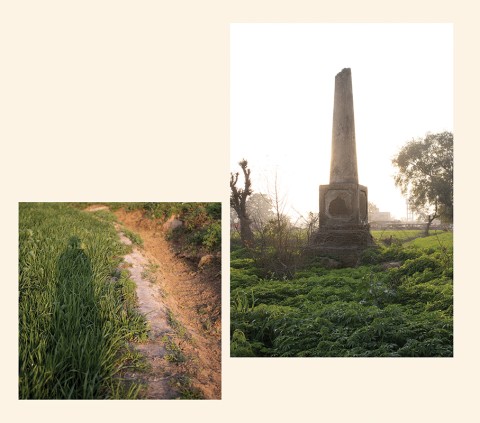Koson Door, by Gol Kamra (Dua Abbas and Jahanzeb Haroon)

Jahanzeb Haroon and Dua Abbas are a husband-and-wife duo based in Lahore, Pakistan. They work together under the name Gol Kamra (Urdu for “round room”), evoking a sense of domestic space as creative wellspring.
In this work, created for the public art project Stations of the Cross in 2021, the artists take inspiration from the story of Jesus’ final journey through Jerusalem to think about the experiences of refugees in the modern period. In particular, Gol Kamra reflects on the immense humanitarian disaster unleashed by the British partition of India in 1947, which led to one of the largest refugee crises in history. In a brief period, millions of people crossed the ersatz border between the newly divided India and Pakistan in an effort to escape ethnic cleansing.
Here, the artists depict a kos minar, one of the centuries-old milestones studded along the ancient Grand Trunk Road running through the subcontinent. Rather than attempting to capture the vast scope of the refugee crisis, they focus on a single sight that their forebears would have passed as they fled from their ancestral homes in Hindu-majority India to Muslim-majority Pakistan. This lonely, dilapidated edifice becomes a sort of broken obelisk, evoking lost and fragmented lives. A long shadow reminds us of the way that past injustices and traumas stretch into the present in subtle ways, across generations.




